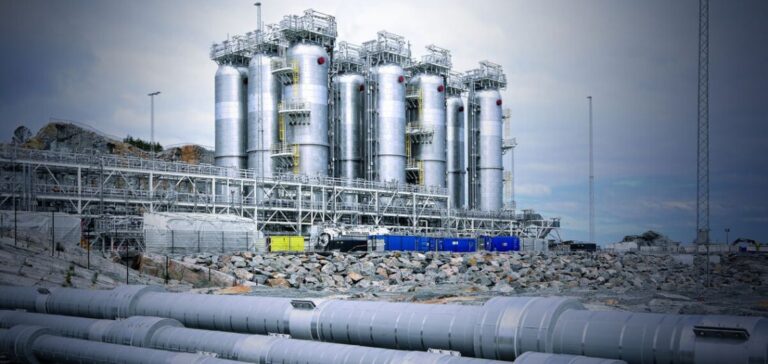The European Union recently approved Swedish state aid worth 3 billion euros (SEK 36 billion) to support the capture and storage of biogenic carbon dioxide (CCS) from the combustion or processing of biomass. This initiative is part of Sweden’s efforts to develop carbon capture and storage technologies aimed at reducing biogenic CO2 emissions.
Program objectives and procedures
Sweden has notified the European Commission of its intention to launch a financial support program for biogenic CO2 capture and storage projects. The aim is to make this technology viable and facilitate its industrial adoption. Funds will be allocated via a competitive auction process, the first of which is scheduled for 2024. The auctions will be open to companies operating in Sweden and emitting biogenic CO2, with projects capable of capturing and storing at least 50,000 tonnes of biogenic CO2 per year.
Beneficiaries will receive subsidies based on the tonnage of CO2 captured and permanently stored, adjusted according to the potential income generated by the projects and other public support received. The program will run until December 31, 2028.
Impact on business and the market
This initiative aims to increase investor confidence in CCS technologies, reduce future costs and develop a CCS value chain in Europe. The European Commission’s evaluation concluded that this program is necessary to encourage investment in CCS projects in Sweden. It has an incentive effect, as potential beneficiaries would not have made these investments without public support.
The impact on competition and trade within the EU is limited thanks to the design of the measure, which ensures that the amount of aid is kept to the minimum necessary. An ex-post evaluation will verify the effectiveness of the competitive auction process.
Assessment and Regulatory Framework
The Commission has assessed this program in accordance with EU state aid rules, in particular Article 107(3)(c) of the Treaty on the Functioning of the EU and the guidelines on state aid for climate, environmental and energy protection (CEEAG). These guidelines enable Member States to support measures aimed at reducing or eliminating CO2 emissions.
The Swedish program is aligned with the EU’s strategic objectives, including the targets set by the European Green Deal. By approving this measure, the European Commission is reaffirming its commitment to supporting innovative industrial projects while minimizing distortions of competition on the European market.
The approval of this €3 billion EU grant for Sweden marks a significant step forward in the development of biogenic CO2 capture and storage technologies. This financial support is crucial to encouraging investment in this sector, reducing costs and developing a robust CCS infrastructure. This strategic initiative is an example of the EU’s commitment to promoting advanced industrial solutions while ensuring minimal impact on competition and trade.






















